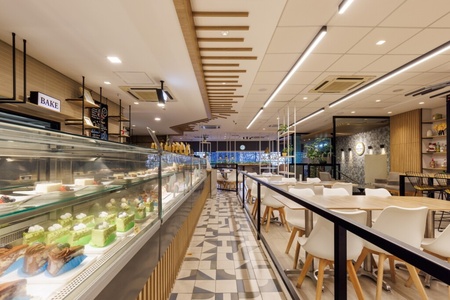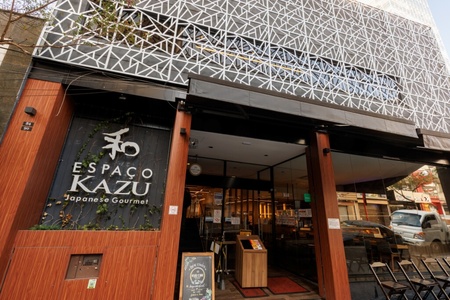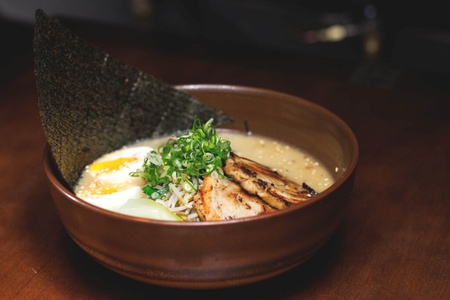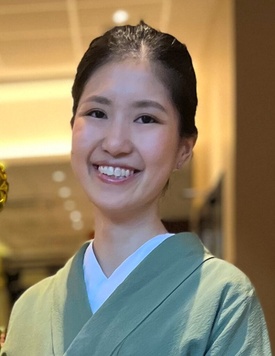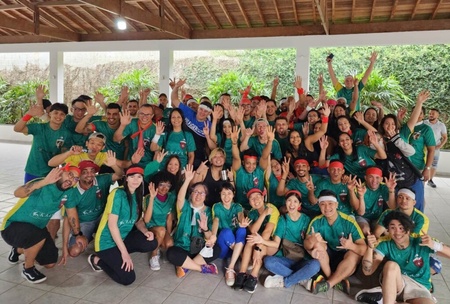In the seventh episode, we spoke with Honda Minami, director of Yamato Group (represented by Honda Soichiro).
Today, the company offers food service services such as "Ramen Wa," a restaurant that is known to almost all Japanese people living in São Paulo, "Espasso Wa," a Japanese restaurant that offers a wide range of menu items from sushi and rice bowls to set meals and Japanese go-go curry, and "Wa Cake," a cafeteria that offers a variety of cakes and breads with a Japanese taste made by professional pastry chefs. The origin of the company's business is still the import and sale of Japanese food and miscellaneous goods, and it has added color to the Brazilian diet through Japanese food.
Pioneer in frozen food imports
Founded in 1991, Yamato Group is a trading company that takes great pleasure in conveying people's "feelings" through its products. One of the first projects it undertook was the first import of Japanese food into Brazil using refrigerated containers. One of the items was frozen pacific saury, which was very popular at the time with people who were nostalgic for the taste of Japan.
The company's import wholesale division currently handles 178 items, including frozen foods such as miso, udon, natto, gyoza, shumai, frozen grated wasabi, etc. With a deep understanding of Japanese products and utilizing the know-how gained from working closely with the Brazilian market, the company imports a wide range of products, from food for retail stores and restaurants to kitchen equipment and supplies.
Since the company's founding, it has been particularly popular for its imported seafood products, but regulations became stricter after the Great East Japan Earthquake in 2011. After that, it took about six years of application procedures with the Brazilian government to import bonito flakes, and it was finally able to start selling them last year.
They also import sake and shochu, which they sell in special coolers installed inside Espasso Wanai. Brazilian and Chinese customers are also frequent visitors, some of whom choose specific brands to purchase. However, due to Brazilian regulations, they are currently unable to import sweet potato shochu. The situation requires that the Japanese government and private sector work together to lobby the Brazilian government so that sweet potato shochu, which has many enthusiasts, can be imported.
"Ramen Wa" commemorating the 100th anniversary of Japanese immigration
Ramen Nago has captured the hearts of ramen lovers living in rural areas, with some people saying, "I always go there when I come to São Paulo." It opened in 2008 and celebrated its 15th anniversary on Immigrants' Day, June 18th this year.
The opportunity to open the restaurant arose when Tadokoro Shoten (Try International), a Japanese miso ramen specialty store, asked if there was anything they could do to help celebrate the 100th anniversary of Japanese immigration in 2008. Taking advantage of their strengths as a trading company, they decided to offer ramen to people living in Brazil for a limited time, offering "something authentically Japanese."
However, at the planning stage, it was discovered that the budget would not have been affected if they had opened a store for a limited time, so they decided to open as a franchisee. It was a hit. They imported noodles, miso, sauce, kelp, and bamboo shoots from Japan, and served ramen that tasted exactly the same as in Japan. It captured the hearts of not only Japanese and Japanese-Brazilians, but also Brazilians, and today it has grown into a store that has long lines of customers.
Continuing the challenge to become Brazil's first
Honda, who has been in his current position for about a year and a half, grew up watching his father, Kazuhiro Takagi, the company's founder, take on new challenges in the Japanese food industry in Brazil. In the early days, he introduced a sushi robot, which was rare in Brazil, and started a bento and catering business, and later began selling onigiri using onigiri film, helping to bring out Japanese culture that was not yet seen in Brazil.
"My predecessor would often say that Japanese immigration began 115 years ago, and that they overcame many hardships to build the Japanese community we have today. I too would like to continue to take on new challenges, grow, support the Japanese community through our company's business, and walk happily with the people of Brazil," says Honda, who is currently preparing to start two new businesses.
One of these is to launch a ghost restaurant (a delivery-only restaurant with no seating) to expand ramen delivery services, which have seen a surge in orders since the pandemic and the ramen boom.
Furthermore, because he wanted to eat delicious pork cutlets made with carefully selected pork and oil, he is planning to open a restaurant specializing in pork cutlets and kushiage. Kushiage is a new genre of Japanese food in Brazil, and the day when stylish kushiage courses can be enjoyed in São Paulo is not far off.
|
Yamato Group Company Profile |
*This article is reprinted from Brasil Nippou (July 1, 2023).
© 2023 Tomoko Oura


